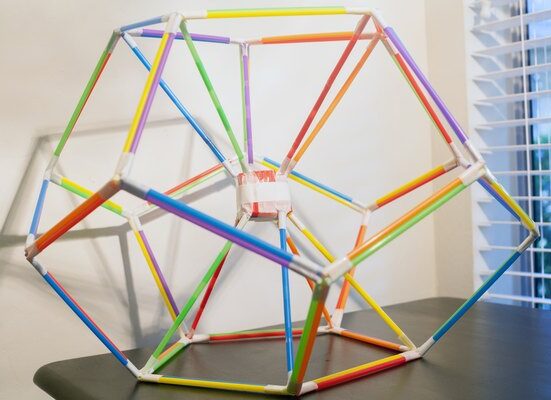Ever wondered what your kids are learning in the kindergarten program when it looks like they’re playing all day? The good news is that if it looks like they’re “just playing,” then the school is doing something right!
Children learn everything through Play and the early years are the most important in their overall development.
I have spent many years teaching and would like to share in a nutshell what every child should learn in kindergarten and how it contributes to a child’s education.
Learning in the first 6 years builds skills through Play.
This is not only for infants and young children. Preschoolers learn best through play when they use both their bodies and senses.
What do children learn in kindergarten?
You may be wondering what the pre-kindergarten curriculum should include or focus on. This isn’t that important. No course in the box, but there is a set of abilities and skills that preschoolers should develop.
Some kindergartens use a theme when planning play activities. Others leave variations. Develop naturally (Learn about caterpillars when children find them in the garden.)
A good quality kindergarten will provide your child with a well-rounded education by balancing free Play and well-planned adult supervision.
What should children know at the end of kindergarten?
Here is a breakdown of what is taught in kindergarten. If you want to use these skills at home, I have prepared a lot of game ideas. Don’t underestimate how low your child learns from you.
Parents are children’s primary school educators!
-
Gross motor skills
Physical development begins with the development of gross motor skills – the body’s large muscles.
At kindergarten, your children are constantly moving. Movement is an essential skill to develop first in the early years. As it is necessary for all other learning
Children need to develop skills such as strength and hand-eye coordination. And flexibility
They also had to develop two crucial senses: vestibular and perceptual perception of the body.
Movement is essential because it stimulates learning, increases concentration, and oxygenates the brain. And works on both sides of the brain. Fine motor skills are also the foundation for fine motor skills.
- Some examples of motor activity include:
- Throw and catch the ball
- Play hopscotch
- Sing an action song
- Playing with bean bags
- Balance on the beam
- Climb and hang
- Caper
- Chasing games
-
Fine motor skills
Fine-muscle coordination – the development of fine muscles – is a prerequisite to learning how to write and essential for daily performance.
In kindergarten, children spend most of their time working on these skills.
Fine motor skills are developed by all kinds of artistic activities, for example:
- Drawing
- Painting
- Cut
Laying
Making boxes from waste materials
It can also be developed in conjunction with other activities such as:
Pegboards
Puzzle
Threading and stringing
Play peg
Play with construction toys (lego is excellent)
Make dough
Developing a pencil grip and learning to create letters begins with these delicate motor activities.
-
Introduction to mathematical concepts
Preschool is where the foundation for math begins. None of the children studied math in the first grade. The type of math they learn will become more formal.
In grade school, children learn:
Rotation count (e.g., counting up to 20)
One-to-one interaction (reliably count objects)
- Classification
- Sorting
- Length
- Capacity
- Weight
- Area
- Temperature
- Time
- Space
- Shape
These concepts can be learned while having fun in the sandpit, baking, playing in the water, and building with blocks. And even while organizing!
-
Troubleshooting
Problem-solving is an important life skill and must be developed early. Learning this in preschoolers also helps the child solve math problems during formal grades.
Problem-solving skills are built during simple activities such as:
Construction drama
Do a puzzle
Play board games
Solve problems while playing social media
-
Language and Vocabulary
Preschool is a linguistic environment in which a child’s vocabulary is greatly expanded.
They learn to make sentences. Grammar and Tenses meaning of words, etc.
Language and vocabulary are learned throughout the day while:
There was a discussion around the time.
Sing a lullaby
Play a game
Play alone and with friends
Learning the topic
Playing with toys, equipment, and other materials
Listen to a story
-
Pre-writing skills
Writing begins with developing critical pre-writing skills through Play and art activities. These four skills are specific requirements for learning to write and will be emphasized during preschool:
Pencil holder
Cross the line
Learn about letters and patterns. (Even if it’s playing, not official writing)
Learning to create patterns (such as drawing big waves or zigzags that mimic shapes found in letters)
-
Listening skills
Listening is one of the most critical and often underdeveloped skills. This should be a focal area during preschool.
Children learn to listen by doing these types of activities:
Listen to a story
Play games like a broken phone or I’m spying.
Follow instructions
For class discussion
Music activity
Even if your child is learning to listen from school, it is highly recommended to highlight these skills at home. Children with good listening skills are more successful and capable at school. Here are some listening games that you can play at home.
-
Musical Skills
Music in kindergarten is more than just developing musical skills. Child development music:
Vocabulary
Understanding of touch, syllables, and sounds
Auditory perception
Concentration
Fine motor skills (finger play)
Gross motor skills (soundtrack)
Math skills (counting rhymes)
Decision-making skills (games such as musical chairs)
-
Visual perception skills
Visual and auditory perception are the two main components of learning to read.
Children develop visual perception during preschool through the following types of activities:
Activities that teach shapes and colors
Sculpting activity
Puzzles and tangrams
Card game
Memory games
-
Hearing Awareness Skills
Aural perception is the brain’s ability to understand what the ears hear. It is essential to be able to learn sounds for reading. This type of activity develops auditory perception:
Recite poems and poems
Playing a musical instrument
Play sound game
Play word game
-
Advance reading skills
While preschoolers develop all necessary pre-reading skills to prepare them for formal learning to read.
Learning to read requires the development of audio knowledge. (Auditory perception) and knowledge of symbols (visual perception) as described above.
Here are the five essential skills to read ahead:
Typographic perception – the understanding that written words convey.
Motivation to read – exposure to books that fuel the desire to read.
Listening Comprehension: The ability to understand what is heard.
Alphabet Knowledge – Informal exposure to letters and sounds during Play.
Voice recognition – the ability to hear sounds in speech. (Initial, middle, and end)
Children are exposed to these types of activities:
Play the rhyming word game.
Play word game
A game that involves hearing syllables.
Play game listen
Follow the instructions (single and multiple commands).
-
Memories
At school, children also strengthen their memory. This is a skill they will rely on learning throughout their studies.
These types of games are often played in preschool classes:
Memory card game (Get your card by downloading the free printable pack at the end of the post.)
Circle memory game
I go to the store and buy… – each child has an eye to add items. But first, all items must be restored before adding them.
Category: Select a category (e.g., Fruit) and circle, asking each child to add a name for one Fruit. Fruits cannot be said twice, so children must remember which Fruit has already been mentioned.
-
Introduction to Scientific Concepts
When children explore and interact with the environment and nature, They will learn about early scientific concepts.
A good example is learning physics by discovering the properties of water during a swim:
Water makes sand heavier
Water influences the texture of the sand.
Waterfall through space (e.g., through a sieve).
The wind (wind) moves the water.
Water is liquid because it is poured.
The water is shaped like a container that is poured into it.
-
Social skills
Where better to learn social skills than in kindergarten? Friends and adults surround children. And they learn to interact with others appropriately.
All-day kids will learn about:
Take turns
Sharing
Consider the opinions of others
Show compassion
Cooperate and negotiate
Conflict resolution
Lead and follow
Creating and following in-game rules to encourage positive interactions.
-
Creative Expression
Preschoolers are a natural source of creativity for children. There are many opportunities throughout school days where children develop creative expression:
During art activities – painting, construction, drawing
Music activities – dancing, singing, and playing musical instruments
Play with construction toys
Drama and Puppetry
Tell a story
Fantasy/Dress Up
Outdoor Play (e.g., fortification)
-
Freedom
Finally, but perhaps I’m the most
Most importantly, the most significant takeaway for young children at kindergarten is their increased autonomy.
Children learn to care for themselves and show their responsibility and desire to be competent.
There are endless opportunities for this:
Normal cleaning time
Responsible for action
Taking care of your belongings (shoes, bags, books, etc.)
Take care of yourself (go to the bathroom, wash your hands, etc.)
Intraday selection (During free Play or doing activities as needed)
And you have it! That’s not a complete list as your kids are learning a lot. But that’s more or less a summary of the skills preschoolers should have.
Here is a detailed school readiness checklist if you want to further delve into each area of development.
Be wary of preschoolers who emphasize academic skills. This is a development inappropriate, and as you can see from the list above, Play is vital in the early years.








31 Comments